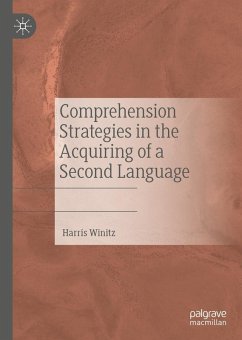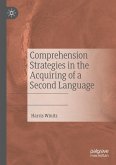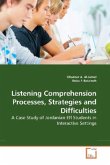This book provides a critical analysis and account of the development of the Comprehension Approach as a method for language learning. The author draws on interrelated sub-fields - including linguistic theory, child language acquisition, and educational technology - to examine how a comprehension-based strategy could have pedagogical potential for adult second language learning. While second language pedagogy has to date been dominated by production models, this book takes another look at the Comprehension Approach as a possible alternative, presenting results from both child first language and adult second language contexts. It will be of interest to psycholinguistics and applied linguistics scholars, particularly those with an interest in second language teaching and learning.
Bitte wählen Sie Ihr Anliegen aus.
Rechnungen
Retourenschein anfordern
Bestellstatus
Storno








